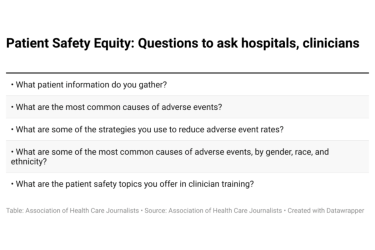
In December, the Supreme Court heard arguments in the pivotal Dobbs v. Jackson Women’s Health Organization, a case that challenges a law enacted by the state of Mississippi in 2018.
The Mississippi law was passed as a direct challenge to Roe v. Wade, the 1973 ruling that underpins legal access to abortion in the U.S.
Roe established a constitutional right to abortion and prohibited states from banning the procedure. It also gave women the right to end their pregnancies before a fetus could survive on its own, around 23 weeks of gestational age. The Mississippi law seeks to ban abortions after 15 weeks.
In two hours of oral arguments, Justices in the court’s conservative majority seemed poised to let the Mississippi law stand, though the court won’t officially rule until June or July.
By the time it heard Dobbs, the Supreme Court had already punted on Senate Bill 8 (SB 8), the controversial Texas law that rewards ordinary citizens for successfully suing anyone who helps a woman get an abortion. At least 12 states are attempting to copy this law. Idaho already has.
Texas has also recently made it a crime to prescribe or mail medications that induce an abortion at home.
These legal actions and many others in state legislatures across the U.S. are rolling back 50 years of legal protections for abortions in the U.S.
According to the Center for Reproductive Rights, abortion would immediately be banned in 24 states if Roe falls. These states either have abortion bans passed before the Roe decision that have never been taken off the books, or have since passed so-called trigger laws that would be enforced if the Supreme Court overturns Roe.
To understand the wide-ranging impacts that banning abortions will have on women’s health care, look no further than Texas, where women are now living through them.
Treatment for life-threatening ectopic pregnancies, infertility care, contraception, prenatal care, and even routine cancer screenings can all be threatened when states ban abortions.
Then there’s the strain on neighboring states. An average of about 1,400 Texans have traveled out of state each month for abortion care since SB 8 went into effect, according to a recent study from the University of Texas. With demand surging, wait times have soared, potentially complicating these procedures or making them more expensive.
Some states are even seeking to close off this option. Missouri recently tried to pass a bill that would make it illegal for women who live there to get an abortion in another state.
In short, there are many stories for journalists to tell and angles to pursue. In a multidisciplinary panel at Health Journalism 2022 in Austin, a panel of experts will discuss the many ramifications of the decision to restrict abortion care in Texas and around the U.S.
The roundtable discussion, “Women’s reproductive health in a post-Roe world,” will take place during the HJ22 awards luncheon on Saturday, April 30. The panel will start after winners of AHCJ’s annual Excellence in Health Care Journalism contest have been recognized.
Featured panelists include:
- Sophie Novack, an independent journalist who covered reproductive health care in Texas extensively for the Texas Observer. Read her story Planned Parenthood Returns to Lubbock.
- Sonja Miller, the interim managing director for Whole Women’s Health Alliance, who has had a front-row seat to the shifting legal landscape in Texas and what it has meant to women. She will talk about their fight, which went all the way to the Supreme Court.
- Lisa Harris, M.D., Ph.D., a researcher at the University of Michigan who examines issues at the intersection of clinical obstetrical and gynecological care and law, policy, politics, ethics, history, and sociology. Read her New York Times Op-Ed, My Day as an Abortion Provider.
- Crystal Berry-Roberts, M.D., an obstetrician-gynecologist in Austin who does not perform terminations. She will talk about the impacts on her practice of SB 8 and other Texas laws.
The panel aims to inform journalists’ reporting on what will certainly be one of the most crucial topics in health care in 2022.








